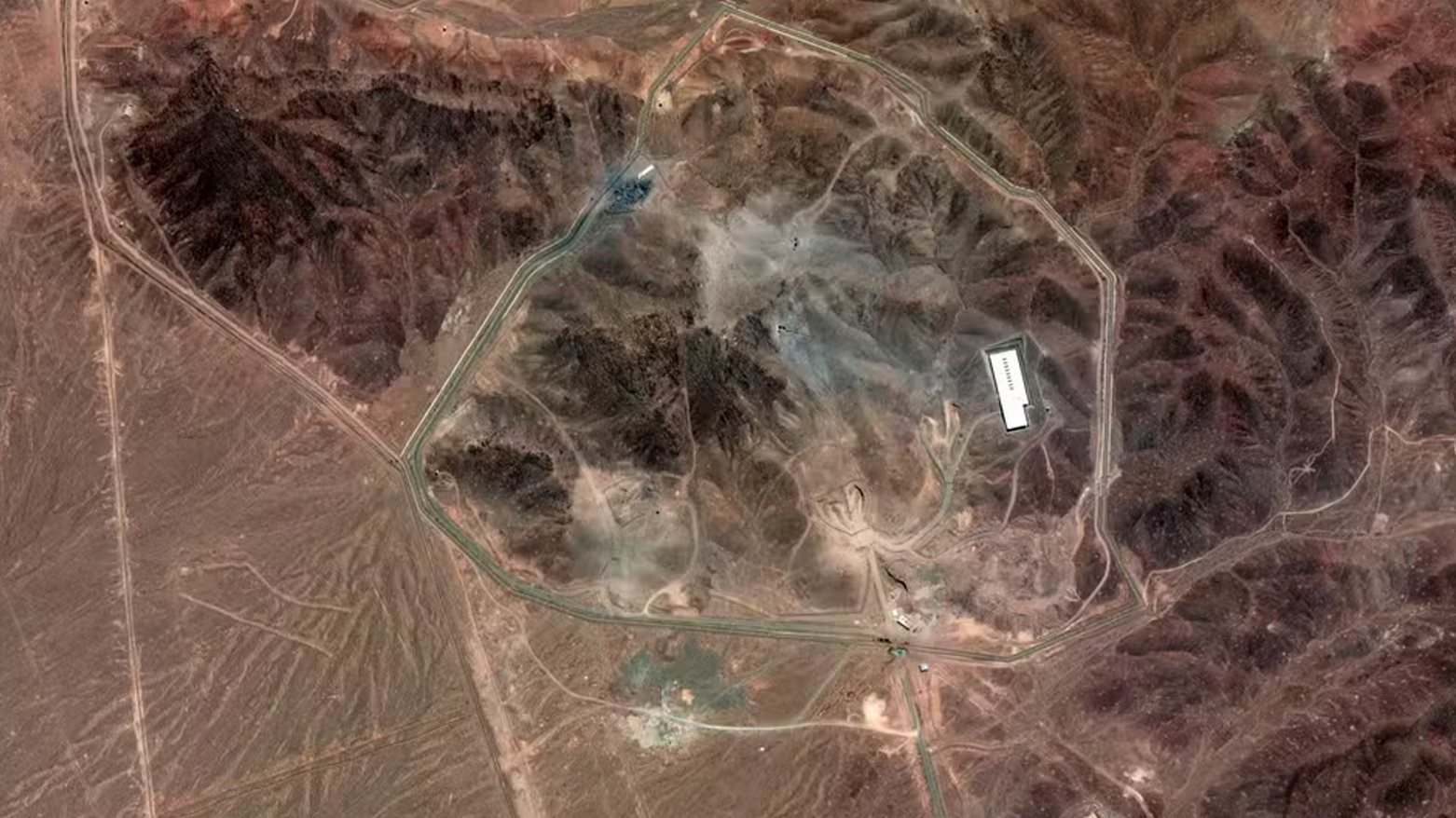Israeli Intelligence Admits Iran's Nuclear Program 'Not Destroyed'
Le Monde reports that Israel believes Tehran retains the material and know-how to produce a bomb in the future.

ERBIL (Kurdistan24) – In a significant and carefully managed disclosure that directly contradicts the triumphant declarations of U.S. President Donald Trump, Israeli intelligence services have privately acknowledged to their French counterparts that Iran's nuclear program, while severely damaged by the joint Israeli-American strikes in June, has not been wiped out and that Tehran retains both the know-how and a sufficient stockpile of material to eventually produce a nuclear bomb.
This candid Israeli assessment, which paints a far more nuanced and sobering picture of the strategic landscape, has been shared with French authorities at a time when, according to the French newspaper Le Monde, the Trump administration has imposed an "absolute ban" on its own intelligence agencies from cooperating with their European partners on the Iranian nuclear file.
The revelations, detailed in a report by journalist Jacques Follorou for Le Monde, citing a French diplomatic source close to the Elysée Palace, offer the clearest picture yet of the true outcome of the "twelve-day war" that erupted between Iran and the Israeli-American duo from June 13 to 25.
The conflict, which saw a series of devastating strikes on key Iranian nuclear facilities, was followed by starkly different public narratives. On June 26, President Trump celebrated having "completely obliterated" the Iranian "nuclear program," dismissing any contrary assertions as "fake news."
Conversely, Iranian Foreign Minister Abbas Araghchi told Le Monde on July 12 that the claim that the program had been wiped out was a "miscalculation" and ominously warned that the nuclear proliferation race had been restarted.
Now, the private Israeli assessment provided to Paris in early September appears to validate the Iranian position over that of the White House.
According to the French source who was aware of the exchange, Israeli intelligence confided that "while the centrifuge manufacturing sites and most of the facilities used for uranium enrichment were destroyed, notably at the Fordow and Natanz sites, the Iranians still have this type of equipment." When asked if Tehran possessed enough to restart its program, the Israeli services estimated, "In too small a number to restart the program in the short term, but it's only a matter of time."
Crucially, the Israelis believe that Tehran has retained its entire stock of the material necessary for the production of a nuclear bomb. The assessment estimates that Iran still possesses "450 kilograms of uranium in gaseous form," a figure that aligns closely with the International Atomic Energy Agency's (IAEA) pre-war estimate of 440.9 kilograms enriched to up to 60 percent purity.
While this is below the 90 percent enrichment required for a weapon, Israeli officials explained to the French that only a small space of 250 square meters is needed for the final push to military-grade enrichment, a capability well within Iran's reach.
This is particularly true, they noted, because the country has retained all of its scientific know-how, despite the targeted elimination of more than a dozen scientists associated with the program.
The exchange with the French authorities has also served to confirm Israel's potent and ongoing intelligence-gathering capabilities within Iran.
The long-standing infiltration of Mossad spies, combined with advanced technical sensors, allows Israel to affirm that it is "in a position to detect a resumption of the program," particularly through the creation of any new, clandestine laboratories. The Hebrew state has also made it clear that it will not hesitate to act again if the program shows signs of regaining strength.
However, in a significant strategic shift, the Israelis confided that a future attack would not be limited to the nuclear arsenal but would target the Tehran regime itself, including key political and economic infrastructure.
This valuable and candid intelligence sharing with Paris has become all the more critical for European powers because, according to Le Monde's information, American intelligence services have ceased all cooperation on the Iranian nuclear file with their European allies since late June.
The CIA, DIA, and NSA have reportedly been placed under a strict communication ban, as President Trump has deemed the destruction of Iran's capabilities to be total, and any discussion to the contrary would be seen as questioning his word. The consequences for defying this edict have already been demonstrated.
On August 22, the head of the DIA, Lieutenant General Jeffrey Kruse, was dismissed from his duties after his agency published a report that contradicted Trump's version of events, estimating that Tehran's nuclear program was only delayed "by a few years" but had not been wiped out.
The Israeli assessment provides a critical backdrop to the current standoff between Iran and the international community.
As previously reported by Kurdistan24, Iranian Foreign Minister Abbas Araghchi recently revealed that enriched nuclear material remains trapped "under the rubble" of the bombed facilities, a situation that complicates any potential inspections by the IAEA.
Tehran has announced a new but highly conditional cooperation framework with the UN's nuclear watchdog, in which access to facilities will be granted only on a case-by-case basis and with the approval of Iran’s Supreme National Security Council. Araghchi has explicitly warned that this new framework "will no longer be valid" if European powers make good on their threat to reimpose UN sanctions.
The Israeli intelligence, therefore, paints a picture of a nuclear program that is wounded but not dead, a reality that stands in stark contrast to the political narrative being enforced in Washington. It suggests a future of continued high-stakes intelligence monitoring, a persistent threat of renewed military action, and a deep and troubling disconnect between the strategic assessments of two of the world's closest allies.